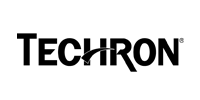Grease: Going over the fundamentals


Grease is defined by ASTM as “A solid to semifluid product of dispersion of a thickening agent in liquid lubricant. Other ingredients imparting special properties may be included.” Base oil forms the major component of grease, followed by thickener and additives. Today grease serves several purposes from lubricating surfaces, reducing friction to rust protection. It fills the gap where liquid lubricants fail to lubricate due to infrequency (sealed for life) and impracticality. It seals out liquids, minimizes re-lube intervals, minimizes leaks and is used for extreme applications where oil doesn’t work.
The National Lubricating Grease Institute (NLGI) has created grades to determine stiffer grease, higher in grade number against fluid or softer grease, which is lower in grade number. In layman’s terms grease works as an oil that does the lubricating and thickener that holds it together. Depending on the composition of the different ingredients determines the applications it can be used for, for example ISO viscosity grade 100 is used inmotors with high speeds and low loads; grade 220 is used in most applications; Grade 320 for higher loads, medium speeds and Grade 460+ for highest loads, slowest speeds. Putting things in context the NLGI has created a service category table to determine the types of applications different of grease can be used for.
| Category | Service | Performance |
|---|---|---|
| LA Chassis |
Frequent re-lubrication intervals (<3200 km). Mild duty (non-critical applications.) |
Oxidation resistant, shear stable, and corrosion and wear protective. |
| LB Chassis |
Prolonged re-lubrication intervals (>3200 km). Mild to severe duty (high loads, vibration, exposure to water). | Oxidation resistant, shear stable and corrosion and wear protective even under heavy loads and in presence of aqueous contamination. Temperature range -40° to 120°C. |
| GA wheel bearings |
Frequent re-lubrication intervals. Mild duty (non-critical applications.) | Temperature range -20° to 70°C. |
| GB wheel bearings |
Mild to moderate duty (cars, trucks in urban and highway service). | Oxidation and evaporation resistant, shear stable, and corrosion and wear protective. temperature range -40° to 120°C with occasional excursions to 160°C. |
| GC wheel bearings |
Mild to severe duty (vehicles in frequent stop-and-go service, trailer hauling, mountain driving, etc.). | Oxidation and evaporation resistant, shear stable, and corrosion and wear protective. Temperature range -40° to 120°C with frequent excursions to 160°C and occasional excursions to 200°C |
Chevron grease is also recommended for Journal & plain bearings and rolling element bearings.




Engineers / Mechanics rely on a selection guideline when it comes to choosing grease for their application needs. Key first information gathering is critical in this analysis which includes OEM requirements, NLGI consistency and service categories among others.
Prescribing the right grease is based on a number of factors such as application, conditions, grease property and easurement changeover practices.
Chevron greases are available for several industries including automotive, fleet / owner operator, service trucks, buses,
construction, agriculture, mining manufacturing, marine, power gen, O&G.
For more info on the Chevron grease product line, click here.






























